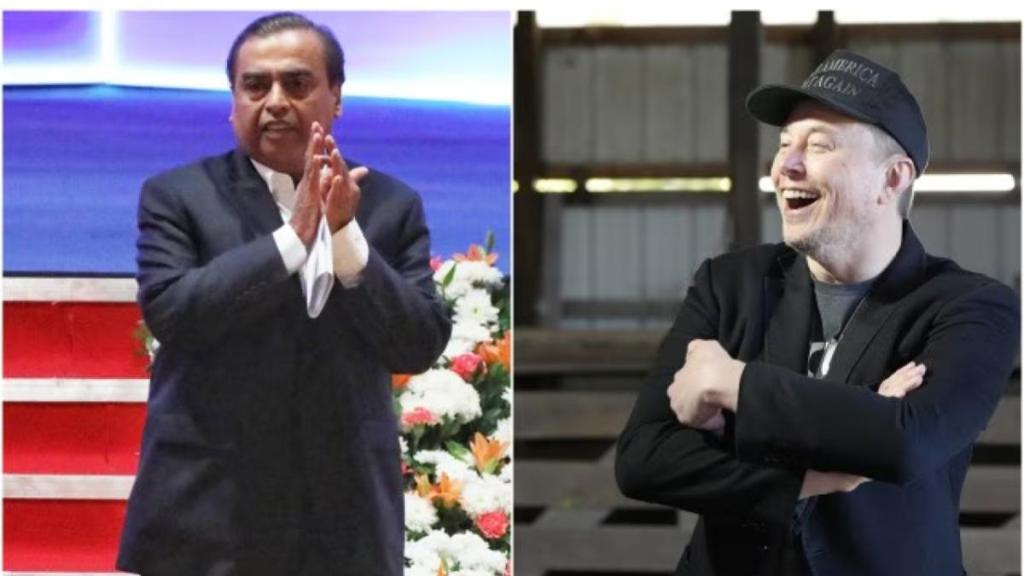India’s government announced on Tuesday that it will allocate spectrum for satellite broadband services administratively, avoiding the auction route proposed by billionaire Mukesh Ambani’s Reliance. This decision follows Elon Musk’s criticism of the auction as “unprecedented,” marking a notable rivalry between the two billionaires in a growing market expected to reach $1.9 billion by 2030, according to Reuters.
The allocation method for satellite spectrum has been contentious. Musk’s Starlink supports administrative allotment, arguing it aligns with global trends, while Reliance insists that auctions are necessary to ensure fair competition, given the lack of Indian laws governing individual access to satellite broadband.
Telecoms Minister Jyotiraditya Scindia stated that the spectrum will be allocated according to Indian laws, with prices set by the telecom regulator. “If you do decide to auction it, then you will be doing something which is different from the rest of the world,” he said.
Musk praised the government’s decision, expressing on the platform X that Starlink aims to serve India’s population effectively. “We will do our best to serve the people of India with Starlink,” he said. His comments follow a Reuters report indicating that Reliance had challenged the telecom regulator’s process, arguing that home satellite broadband spectrum should not be auctioned.
Scindia’s remarks strengthen Musk’s position, especially after he stated that the spectrum has long been recognized by the International Telecommunication Union (ITU) as shared. He emphasised that allocation should be rational and efficient, given that spectrum is a limited resource.
Sunil Mittal, co-chair of Eutelsat and Airtel’s chair, supported the auction route, stating that satellite companies targeting urban areas should obtain telecom licenses and buy spectrum like other telecom operators. Earlier this year, both Eutelsat’s OneWeb and Airtel had raised concerns about the auctioning process in their submissions to the Indian government.








